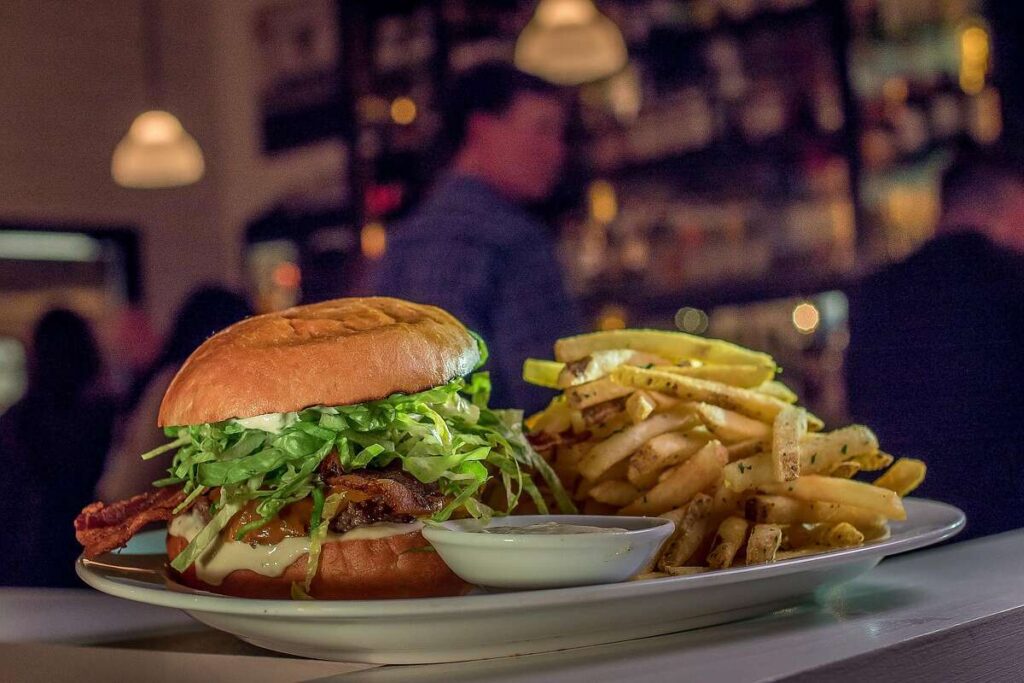Restaurants are turning to off-site locations as a lifeline during the pandemic.

Ghost kitchens are commercial kitchens that are used solely for the preparation of food for delivery. They do not have a physical storefront or dining area, and customers cannot order food for pickup or dine in at the kitchen. Instead, ghost kitchens prepare food for delivery to customers through third-party delivery services or the restaurant’s delivery service. Ghost kitchens allow restaurants to expand their delivery range, streamline operations, and reduce overhead costs. They have gained popularity during the COVID-19 pandemic as a way for restaurants to adapt to the increasing demand for delivery. Companies that operate ghost kitchens have earned billions of dollars in venture investment. The business model has potential for the future as consumers increasingly turn to delivery and restaurants seek new ways to reach them. Ghost kitchens can take on various forms, such as small trailer-like structures, brick-and-mortar food halls, fully-equipped kitchens, or commissary kitchens with dine-in seating.
Bay Area’s Ghost Kitchens
Ghost kitchens in the Bay Area may operate under different names than their parent companies or brands whose food they serve, making it difficult to count the number of ghost kitchens in the region accurately. Some ghost kitchens in San Francisco have obtained permits as catering businesses, which allows them to bypass specific city regulations faced by restaurants. For example, Reef’s kitchen vessels are licensed as mobile food facilities in the city.
Reef Technology
Reef Technology, a Miami-based parking company, operates ghost kitchens in the Bay Area using its parking lots as delivery bases for small, mobile structures called “kitchen vessels.” These vessels contain food preparation facilities for one to six brands and are analogous in size and shape to shipping containers. Until recently, Reef’s kitchen vessels in the Bay Area produced food exclusively for the company’s in-house brands, which exist only within a delivery app and are not attached to a traditional brick-and-mortar restaurant. However, Reef is also working on deals with local restaurants through licensing agreements, where Reef chefs produce dishes from the restaurant’s menu when ordered through a third-party delivery app. REEF has a larger commissary kitchen facility in San Francisco, which houses its kitchen staff. The company is also experimenting with new services such as a “family meals” package and a virtual “stock-up mart” to deliver sundries and other miscellaneous items.
Investing tours
Ghost kitchen companies have been attracting investors since 2009 but saw an exceptionally high level of investment in 2019, with a global total of $1.9 billion. The most prominent ghost kitchen company, CloudKitchens, has a pre-money valuation of $4.6 billion and received an additional early-stage investment of $700 million in 2019. In November of that year, Reef closed the most significant ghost kitchen funding round, totaling $900 million, led by SoftBank Vision Fund. Ghost kitchen companies may experience a “significant tailwind” after the COVID-19 pandemic ends, as restaurants put renewed emphasis on making delivery options easier to scale and less disruptive to their physical stores. However, the report also notes that the capital-intensive model of ghost kitchens means the path to profitability may be extended. Companies premised on scalable food-delivery systems in San Francisco have struggled to succeed despite significant venture capital investment.
The full article is “Restaurants are turning to off-site locations as a lifeline during pandemic. – San Francisco Business Times.“